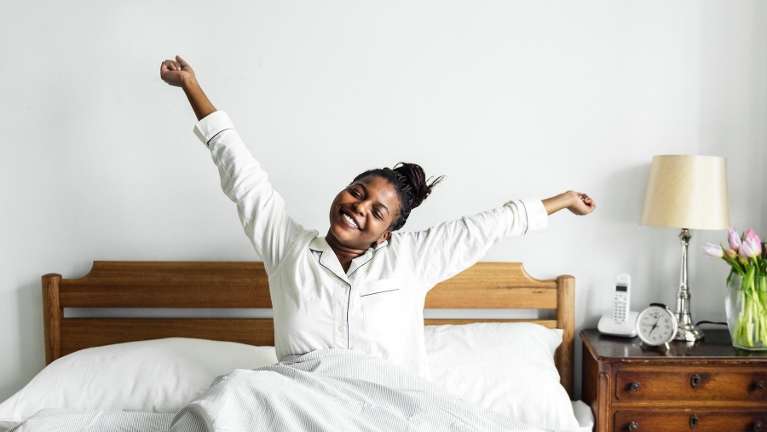
Getting enough sleep is essential for overall health and wellness. Sleep plays a crucial role in multiple bodily functions, including heart health, repair, immune system function, hormonal balance, cognition, mood regulation, emotional well-being, and more.
Ensuring you get quality sleep is as important as other essential lifestyle habits for good health, such as eating a nutrition-rich diet and regular exercise. A lack of sleep is damaging to both your physical and mental health. Are you getting the rest you need?
Try these techniques to get better sleep each night and enjoy greater health:
- Keep a regular schedule. That means going to bed at the same time each night and getting up at the same time each morning, even on the weekends. If you normally wake up at 6 AM every morning but get up at 9 AM on the weekends or go to bed at varying times at night, you’re likely to experience issues in the quality of your sleep.
- Get some exercise during the day. If you’re mentally stimulated all day but not getting enough physical activity, you might have trouble sleeping at night. Physical activity helps to burn off stress hormones. It also strengthens your body and allows you to relax more easily at the end of a long day.
- Avoid daytime naps. If you’re sleeping during the day, you might have more trouble sleeping at night. Even though you may be extremely tired, force yourself to stay awake until it's time to go to bed.
- Avoid caffeine. Giving up caffeine can be a challenge for many people. Though the medical community often suggests a cut-off time of 2 PM, caffeine is a stimulating substance that can stay in your body for many days. Quitting the caffeine habit can greatly improve the quality of your sleep.
- Keep your evening meal light. If you’re used to eating an evening meal, choose lighter foods that will take less energy to digest, like fruit or a smoothie and some whole-grain bread. Be aware, however, that eating food within three hours of bedtime can inhibit the production of the hormone melatonin, which relaxes you and helps you to go to sleep. Allow your body a few hours to digest your food before attempting to sleep.
- Avoid drinking alcohol. Alcohol is a depressant. It depresses your ability to sleep. Though alcohol may cause you to be sleepy, it is not good for sound, quality sleep. Besides this, it can create an addictive habit that leads to insomnia and increases the likelihood of other serious health risks.
- Adopt an evening ritual. If you are used to watching television or being on other forms of media before going to bed, consider switching to activities that are less stimulating yet still engaging. Studies have shown that being on media before bedtime can cause sleep disturbances. Try inspirational reading or listening to relaxing music, which can be more conducive to a good night of sleep.
- Get a comfortable mattress and pillow. If you were on a survival outing, a bunch of hay to sleep on might feel great to get you through the night. However, since sleep is a vital part of health, you’ll benefit more from investing in quality bedding. With that in mind, ensure that you have a good mattress and pillow so you can sleep comfortably.
- Keep your room dark when sleeping. Light seems to come from so many sources (outside and inside) these days — street lights, phone chargers, clocks, and various digital devices. Make your room as dark as you can get it for optimal sleep. If there is a light in your bedroom that you can’t eliminate, try using a sleep mask.
If you want physical, mental, and emotional health, remember that sleep matters. It refreshes, restores, and regulates. Try these tips and watch how your sleep and health improve.
Photo by: Raw Pixel
